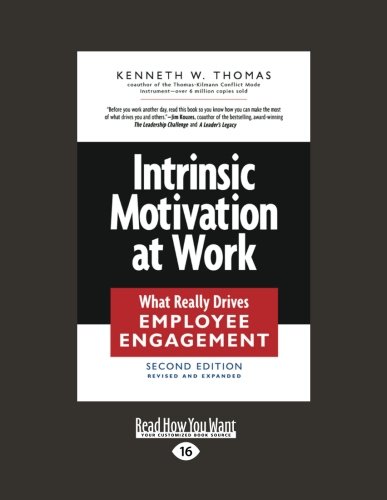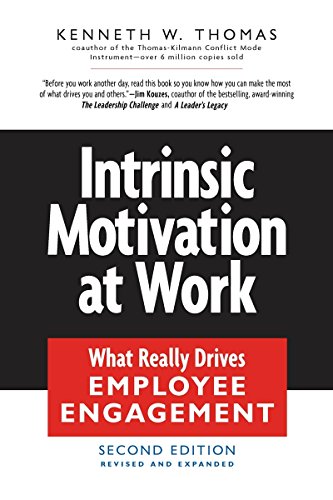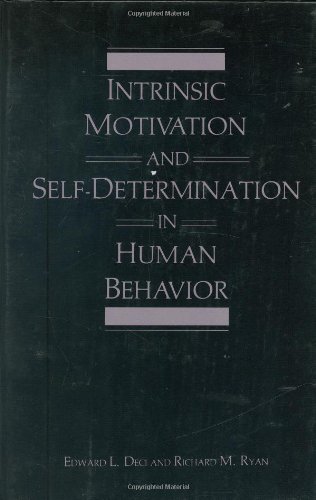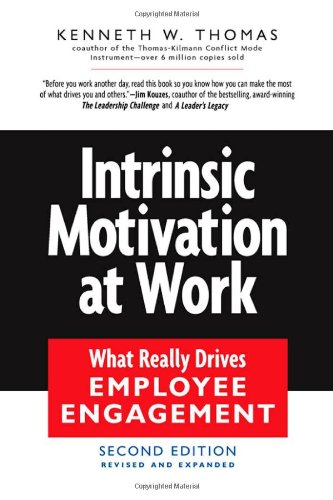
What motivates people to do their best work in any endeavor they undertake? Management theory and practice has traditionally focused on elements that Kenneth Thomas calls ‘extrinsic motivators’: pay, benefits, status, bonuses, commissions, pension plans, expense budgets, and the like. While these are powerful motivators, particularly in command/control job situations where workers have little or no say in how the job is managed, by themselves they are no longer enough. In today’s organizations, where managers expect workers and teams to self-manage their work, intrinsic rewards are essential. This breakthrough book provides the first comprehensive treatment of intrinsic motivation in the workplace-the psychological rewards workers get directly from the work itself-offering clear advice on how companies can harness its tremendous power to develop a more committed, self-managing workforce. Written in an engaging, accessible style and grounded in solid academic research, the book provides a diagnostic framework for addressing problems of intrinsic motivation and essential ways to build it. Thomas describes four intrinsic rewards needed to energize today’s employees: A sense of purpose or meaningfulness; The ability to choose how the tasks are performed; A sense of competence from performing work activities well, and A sense of progress. Thomas offers detailed information on these rewards, together with the building blocks leaders and workers can use to create them. Finally, he spells out the practical implications for executives, managers, and employees themselves. Intrinsic Motivation at Work makes a major contribution to the topic of work motivation-one that is based on a keen understanding of the changing requirements of today’s workplace and the limitations of other motivational models. The paradigm and practical approaches this path-breaking book provides will help business leaders build motivation at every level of their organizations. Ken is also the co-author of the new assessment, the Work Engagement Profile, which measures four intrinsic rewards that fuel employee engagement in the workplace, as discussed in Intrinsic Motivation at Work. The WEP is published by CPP, Inc.
Product Features
- Used Book in Good Condition





